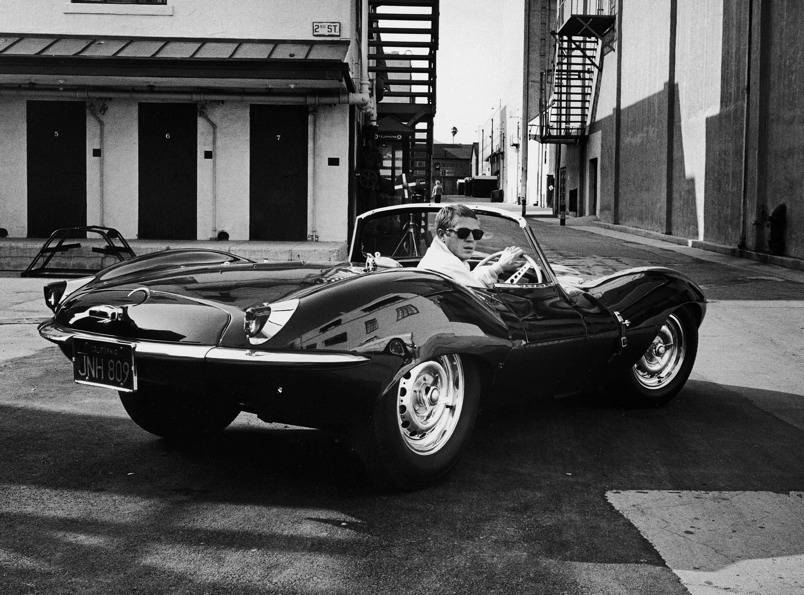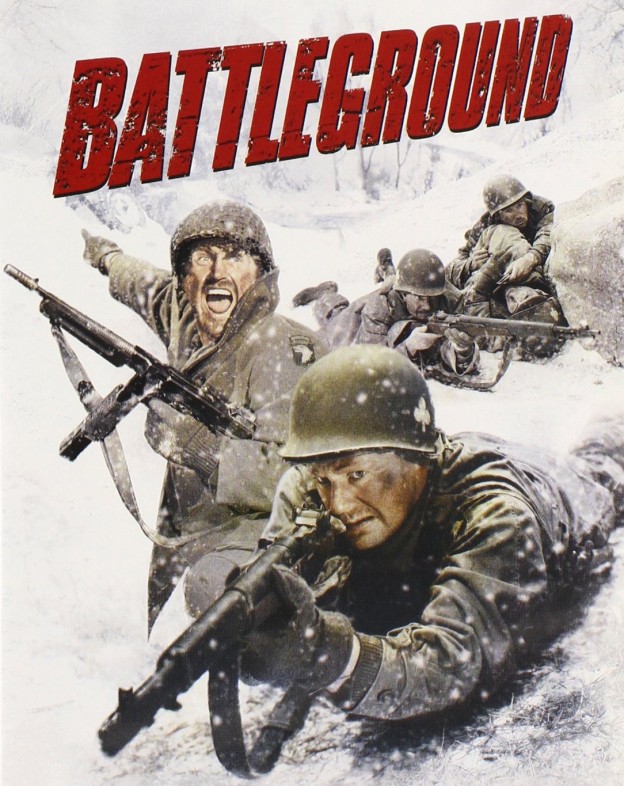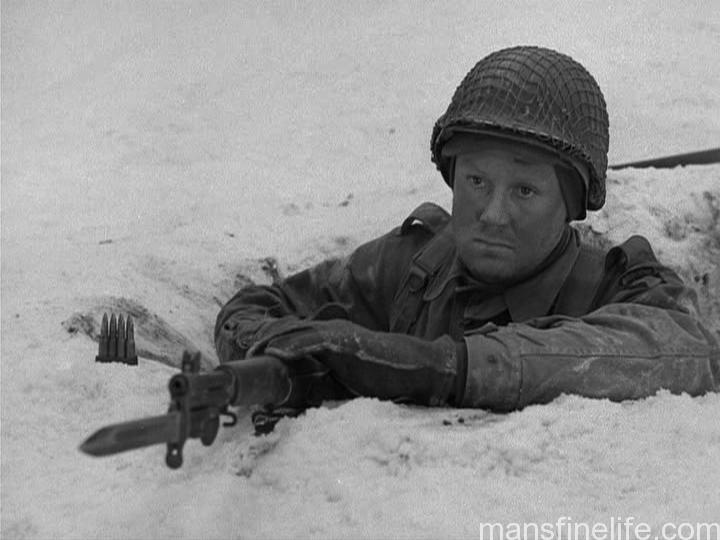It is sorely tempting to recommend Battleground as a Holiday movie because so much of the action takes place around Christmastime. But since it’s an archetypal World War II film I figured I better just include it along with the other classic movies we talk about around here. Still, there is something about watching it during the Holiday Season that makes you thankful that such brave soldiers stepped up to the grueling challenge of defeating the monstrosity that was Nazi Germany those many years ago. And while this 1949 movie is a long way from the justifiably gung ho, sentimental propaganda that was a Hollywood mainstay during the actual war years, I’d still be willing to bet that you might find yourself tearing up at points thinking about what these young men had to go through in order to prevail against such steep odds. Such is the excellence and impact of the terrifically well made Battleground even to this day.
The film recounts the famous predicament of a very banged up and replacement-heavy Army VIII Corps, including the 101st Airborne division, when they were cut off and encircled deep in the Ardennes Forest by the Third Reich’s last desperate offensive push, which became known as the Battle of the Bulge. Familiar to anyone who has watched the excellent HBO miniseries Band of Brothers, this was actually a cock up by the Allied Forces by somewhat letting down their guard after the initial hard-fought success of D-Day and the semi-setback of Market Garden. The massive and perfectly orchestrated German attack on overly stretched lines took the Americans and the Allies completely by surprise and it was only after very hurried reinforcement, enduring heavy casualties and the clearing of some of the worst winter weather in years that the combination of Patton’s 3rd Army coming up from the south and US air power could be successfully deployed to bring relief to the soldiers trapped in the Ardennes. In all, the Battle of the Bulge lasted from December 14, 1944 to January 25, 1945 but the key breakthrough by Patton’s forward relief force arrived the day after Christmas, the true beginning of the end of the battle. A largely German-American affair, each side suffered massive casualties but ultimately it was the outnumbered Americans who thwarted the surprise German advance, eventually breaking the back of the enemy incursion and essentially dooming the potential for the Third Reich to sue for peace on any terms other than complete surrender.
The excellent ensemble cast features the great character actor James Whitmore as the rock-like Platoon Sargent Kinnie, Van Johnson (usually a song & dance man) as the very funny and reluctantly heroic scrounger PFC Holley and a young and very good Ricardo Montalban as Los Angelino “Johnny” Roderigues, among other quality performances. The script features snappy, naturalistic dialogue written by Bulge veteran Robert Pirosh, who won the Academy Award for his work. And the action is well-focused by the muscular, no-nonsense direction of legendary tough guy William “Wild Bill” Wellman and augmented by the starkly beautiful black & white winter cinematography of Paul Vogel, who also took home an Oscar for his efforts on the picture. As the film gets rolling it focuses specifically on the 101st’s attempts to deny the Germans the pivotal crossroads town of Bastogne. As the main characters’ 3rd Platoon is infiltrated and picked off by the Germans and they are moved around trying to patch up breaches on perilously thin lines, each man has his mettle tested. Unusually for a Hollywood WWII film of this era, or at least how we think of a typical one today, each man almost invariably faces a moment of cowardice or panic when confronted by true combat situations. But they overcome their fear by remembering their duty and most of all their allegiance to their platoon mates. Nothing is quite as good a motivator of men in war as the fear of letting down your buddies in the clutch and it is this esprit de corps that propels the ragtag 3rd Platoon to push them through their desperate moments and fight nobly against the deadly military and environmental forces arrayed against them.
Perhaps the one little extra detail that makes the siege of Bastogne and the American resistance there so legendary is the immortal reply of the commanding officer of the 101st in response to a German offer of surrender: “Nuts!” Brigadier General McAuliffe’s brusk refusal has gone down in history as one of the most prototypically American moments from WWII and is of course referenced in the film. But even more so, that spirit of blunt, stubborn resistance in the face of overwhelmingly bad odds seems to infuse the portrayal of the soldiers in Battleground. Flawed, funny and in the end persistently if unglamorously heroic, the characters in this film will have you laughing one minute as they perpetually repeat their sardonic refrain “I found a home in the Army!” under increasingly desperate conditions and then fearing for their lives the next as the bombardments, snipers, machine guns and brutal cold take their toll on the unit.
Being made so closely after the end of the war, Battleground still reverberates with the epic events it is depicting, among the most fraught of WWII. It’s honest sense of soldiers at war holds up extremely well. It’s also a window into an interesting time in American filmmaking as it came to grips with the aftermath of World War II and began to treat the subject in a more complex and realistic manner. It goes down as one of the greats in my book, probably the first great post-war WWII movie, and for reminding us of the sacrifices and clear-eyed heroism necessary to win the war it stands out as one I want to watch again and again. I’m particularly drawn to it in the winter months when the Holidays approach, we hope for peace on earth and remember what to be grateful for in our lives. A movie like this reminds us also to be grateful that there were soldiers of the past like those in the Ardennes and so many other places during that terrible global war. Soldiers who inspired both art like Battleground and perpetual remembrance with their deeds and sacrifice in the service of our country and of freedom worldwide. Where would we be today without them?




